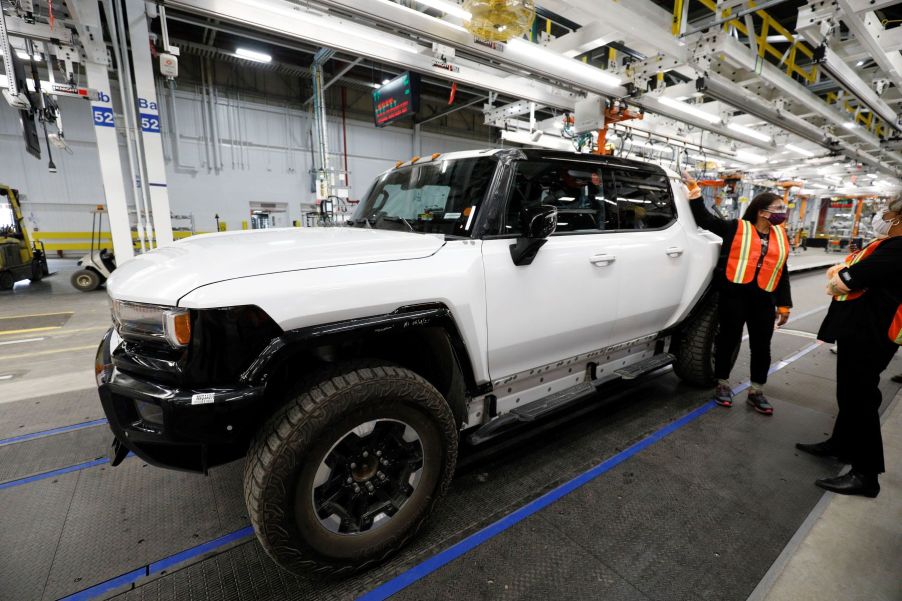
GM Is Halting Production at Nearly All North America Assembly Plants
The economic impact of the coronavirus (COVID-19) over the past year and a half has been extensive. One segment of the economy that has been particularly impacted is car manufacturing. Manufacturers have struggled to maintain pre-pandemic production levels due to various factors, including chip shortages, which continue to affect companies like General Motors. In fact, GM recently halted production at nearly all of its North American plants due to these shortages.
Coronavirus has shut down production of a variety of vehicles

Earlier this summer, The Washington Post provided a rundown of the surprising number of companies that have been forced to shut down production at various points during the pandemic. As of July, 17 companies had shut down production in North America and Europe due largely to the chip shortages, which were attributed to the pandemic and factors such as a fire at a semiconductor chip plant in Japan.
Car manufacturers affected by this shortage included such stalwarts as Ford, General Motors (GM), Tesla, BMW, and Daimler. Shutdowns affected plants spanning the country and the globe in Michigan, Kentucky, Kansas, Mexico, Canada, and Germany. Estimates for losses to the car manufacturing industry for 2021 due to chip shortages have run as high as $110 billion.
GM has halted production in North America due to chip shortages
In early September, the Detroit Free Press reported that General Motors had announced a new temporary halt in production at nearly all North American facilities due to the ongoing chip shortage. The only plants not affected by the shutdown were Arlington, Flint, Bowling Green, and a portion of its Lansing Grand River Assembly, where the company planned to continue putting out some Chevy Camaros and Cadillac Blackwing models.
However, things weren’t going to be totally idle, even in many plants that were temporarily shut down. GM spokesman Dan Flores commented on the situation, “During the downtime, we will repair and ship unfinished vehicles from many impacted plants, including Fort Wayne and Silao, to dealers to help meet the strong customer demand for our products. Although the situation remains complex and very fluid, we remain confident in our team’s ability to continue finding creative solutions to minimize the impact on our highest-demand and capacity-constrained vehicles.”
Snagging a deal on a car is now a real challenge for customers
The shortage of new vehicles created by the lack of semiconductor chips generates quite a quandary for those in the market for a new car, truck, or SUV. As the supply of these vehicles has dwindled, demand for whatever’s available has skyrocketed.
This has meant that not only have prices on new cars been rising, but sticker shock for used vehicles is commonplace as well. After all, when consumers can’t snag the new vehicle of their dreams, they begin looking into used options. Likewise, when demand spikes in that market, prices do as well.
Thus, while haggling over prices with a car salesman used to be the norm, it seems that, at least for the time being, those days are behind us. Low inventory on both new and used vehicles gives the upper hand to dealers who may well have competing offers on a single vehicle. Indeed, due to the pandemic, many car dealers have started operating more like companies such as CarMax by offering customers a “one-price” option. While this may simplify the process of buying a car, it doesn’t necessarily bode well for consumers’ pocketbooks.
Car manufacturers continue to hope that the chip shortage gets sorted out soon. Until that happens, expect to continue to see rolling shutdowns and limited vehicle supply remain in place.


